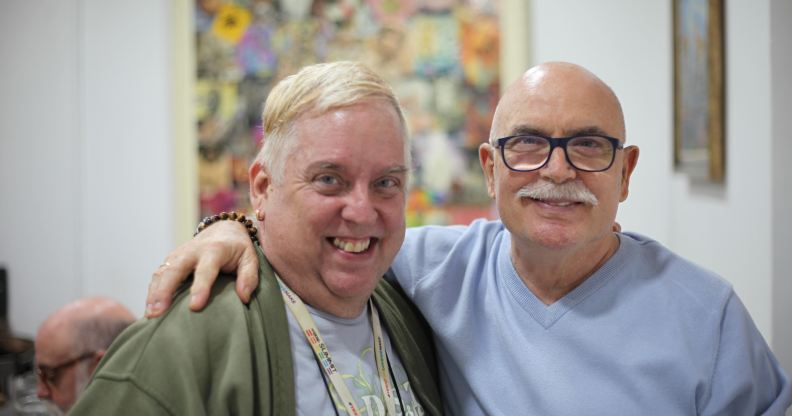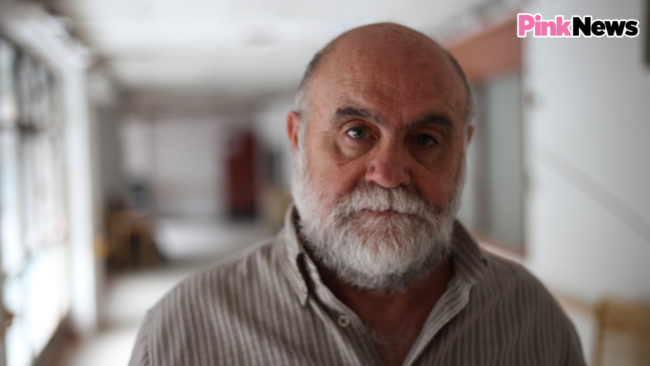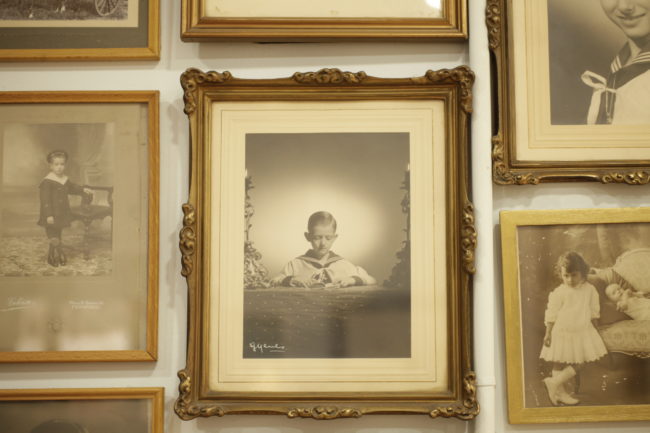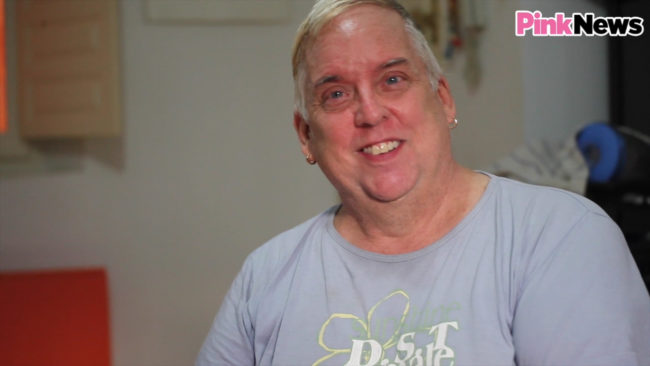Inside Spain’s first LGBT retirement home

Clients at the 26 December Foundation in Madrid anticipate the LGBT-friendly retirement home opening (PinkNews)
Federico Armenteros Avila, a well-built man in his mid-sixties, removes heavy padlocked chains from the door of a large, abandoned building in Madrid. It’s set to become Spain’s first LGBT+ retirement home.
Once inside, we find rubble, broken glass and even a birds nest, complete with two eggs lying in it.
“You see, 10 years empty!” laughs Armenteros Avila, seemingly unfazed by the scale of the challenge ahead of him. The dilapidated site is set to be renovated into a retirement home for the LGBT+ community, funded by Madrid’s regional government.
“This is going to be the first publicly funded residence of its kind in the world,” he tells PinkNews.
“A residence that will welcome people who don’t have many financial resources, to care for these people whose only other option is to die in the street, or alone at home.”
The residence will be managed by Federico’s organisation, the 26th December Foundation, whose name serves as a reminder of the Spanish LGBT+ community’s particularly difficult history of fighting for equal rights.
“We want to give specialised care so that people don’t have to go inside the closet again.”
— Susana Guimarães
On December 26 1979, Spain finally saw the repeal of a law that had been used to imprison people suspected of same-sex relationships during General Francisco Franco’s fascist dictatorship, which lasted from 1939 to 1975.
“It was a time of fierce persecution of sexual liberty,” says Armenteros Avila, who remembers the fear that he felt as a gay man during Franco’s regime.
“They put you in prison, or sent you to a psychiatric ward. They used electroshock therapy to ‘correct you’—that was if you were lucky. The unlucky ones had lobotomies.”

Armenteros Avila survived Franco’s homophobic regime and is set to open Spain’s first LGBT+ retirement home (PinkNews)
Homosexuality was formally outlawed from 1954, with a reform of Spain’s Vagrancy Act that declared measures to correct “those subjects fallen to the lowest levels of morality.”
Thousands of LGBT+ people were imprisoned as a result.
Armenteros Avila describes how the threat of these punishments led to a total lack of self-expression by queer people.
“You couldn’t speak to anyone,” he says. “You learnt that you have to show yourself to be something that you are not, you go into a kind of theatrical performance.”
What will the LGBT retirement home provide?
These decades of repression of sexual identity have left a long legacy of mental health issues, according to psychologist Susana Guimarães, who works at the 26th December Foundation.

Childhood photos: Many of those hoping to retire here lived through Franco’s regime (PinkNews)
“We see a lot of people that suffer a lot, people lived in the closet for all of their life, now they have all of these characteristics of internalised homophobia,” she tells PinkNews.
The new residence, Guimarães explains, will provide clients with a safe space.
“They feel a lot of shame and a lot of instability when they have to live in those places,” she adds.
“We want to give specialised care so that people don’t have to go inside the closet again.”
“I’ve been fabulous throughout my life and I want to be fabulous till the very end of my life.”
— David
The foundation currently runs a day centre that caters to the needs of the elder LGBT+ community. It provides a regular lunch club, activities such as swimming and hiking trips, as well as therapy and healthcare.
Who will live in Spain’s LGBT retirement home?
David, one of the centre’s clients, is an American-Irish dual national who moved to Spain specifically because of the foundation and the proposed new residence.
“The new residence in Villaverde is everything to me: medical support, social support, in a safe place,” he tells PinkNews.

David hopes to move into Spain’s first LGBT+ retirement home (PinkNews)
David has previously found many services for elderly people to be less than LGBT-friendly. So he knows the value of having a place to grow old where he’s neither judged nor excluded for who he is.
“It’s important to me to be my authentic self,” he explains.
“I’ve been fabulous throughout my life and I want to be fabulous till the very end of my life.”

